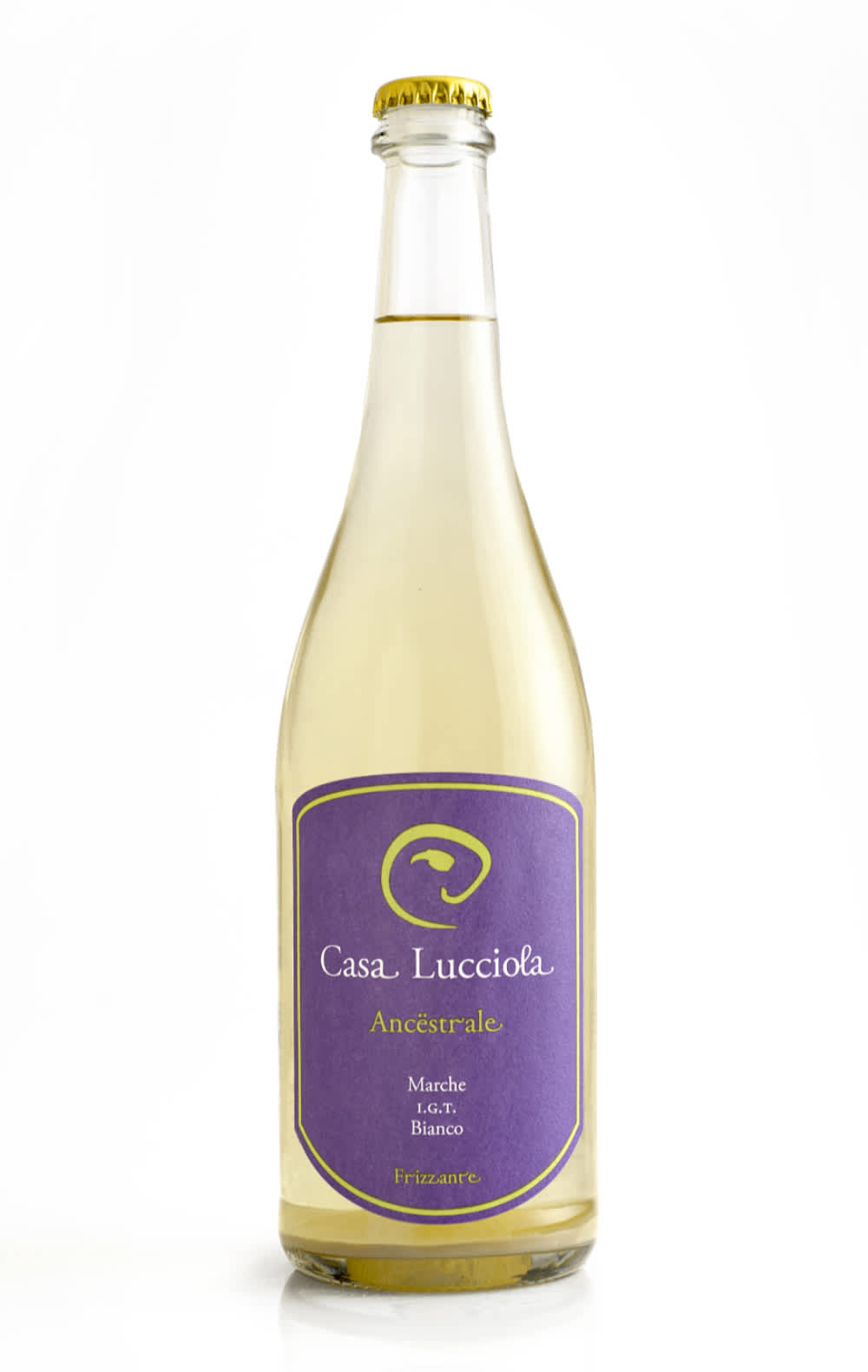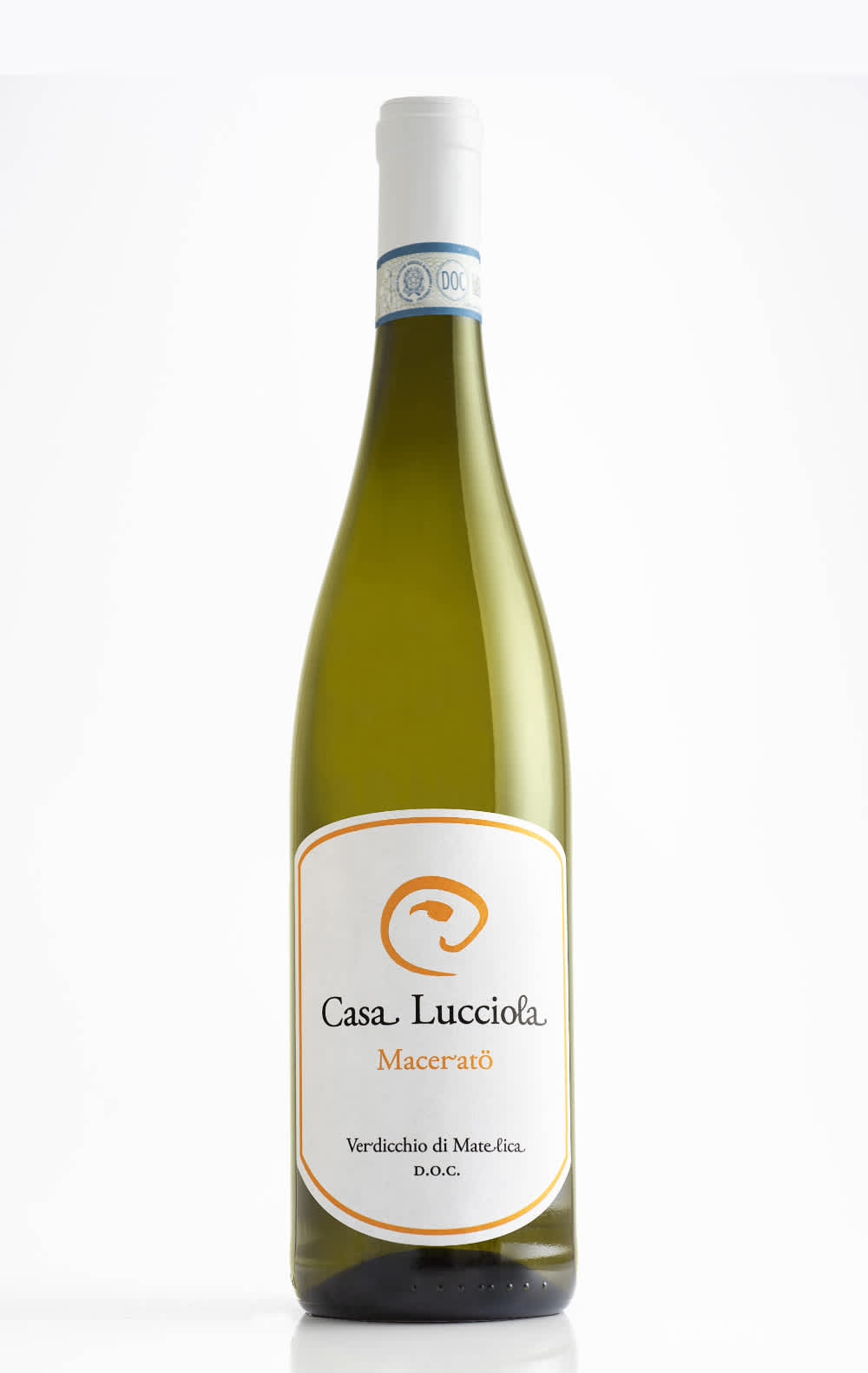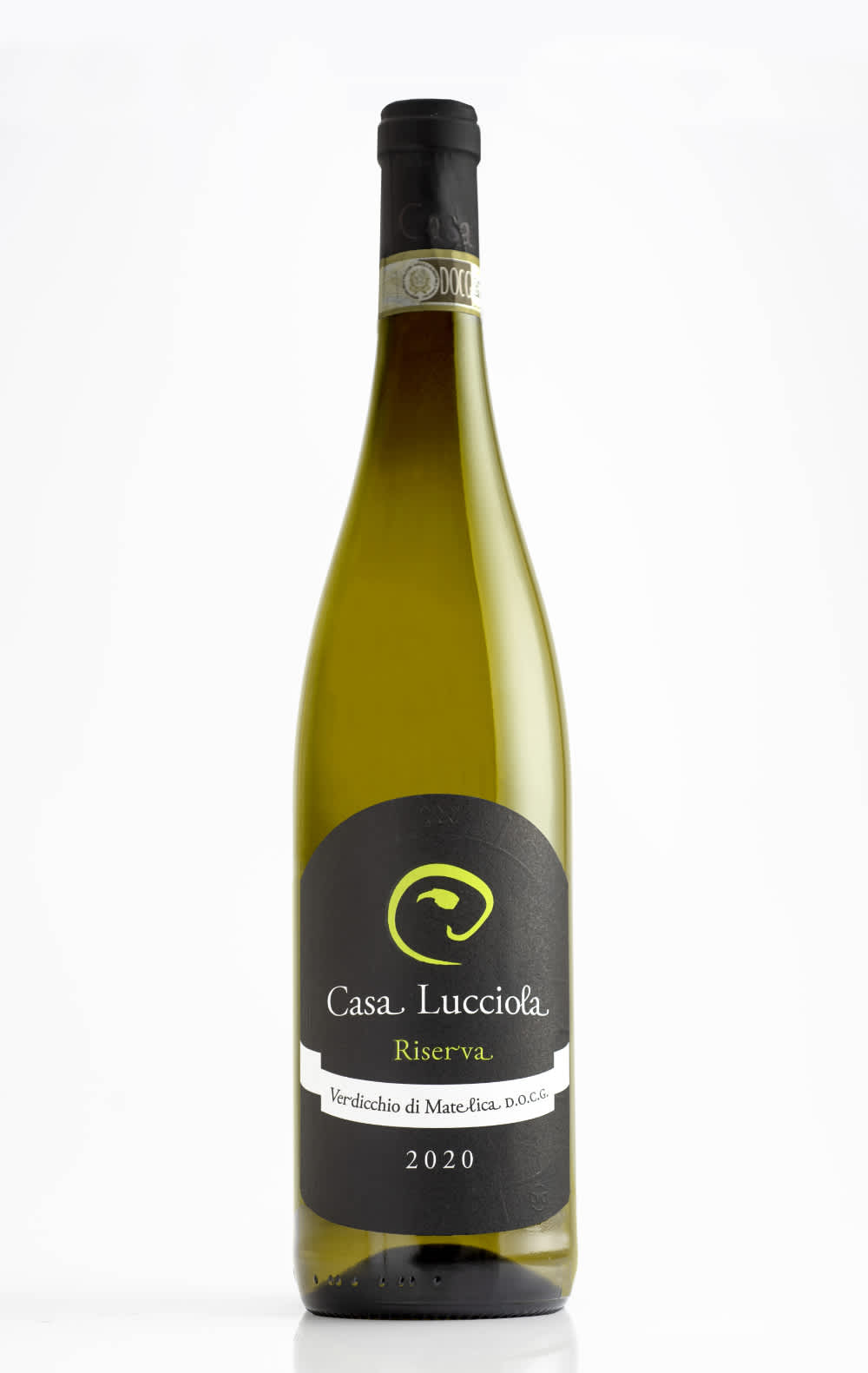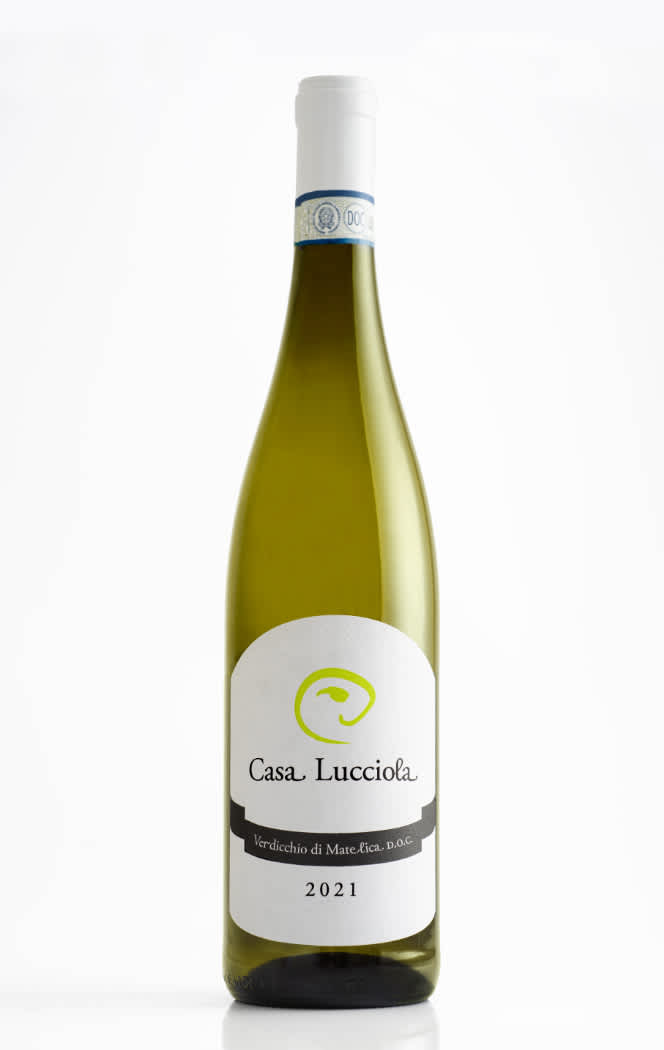Casa Lucciola is the name of the hill where we live. We are in the Marche region, in the Matelica valley, at 430 meters above sea level. Here a small farm, above the fog line, surrounded by vineyards, produces and bottles a genuine Verdicchio, fermented naturally with little sulfur and so much respect for Nature. The Cruciani family has been taking care of this piece of earth under the sky practicing organic agriculture for 25 years. Every day the four hectares of our vineyards enjoy the sunset behind the Apennines. We work on it the whole day, most days. When we are not among the vines, we are in the cellar or doing some paperwork. The Matelica valley is in the hinterland and is like a small Trentino in the Marche region, for its strong temperature excursions both Summer-Winter and night-day. Verdicchio di Matelica is a vine that gives a structured white wine with an important acidity, a distinctive minerality and an almond finish. It wasn’t easy at first. Luca worked as a graphic designer in a printing house and Barbara, in addition to work, had to look after three young children. Time seemed never to be enough. Planting and taking care of a vineyard is a lifestyle choice, it is a marriage with the ground. The vineyards surround the house where we live, our intention is to pollute as little as possible, we aim to leave a trace as light as necessary, in harmony with Nature. We believe in good agriculture that maintains and improves the fertility of the ground, so as to leave to future generations the possibility of producing quality food and wine. With the firm belief that true life is in Nature and in respect for the Others. IN THE VINEYARD When it was time to plant the vinyard, I didn’t think about it for a moment: it was my opportunity to do what I love, to work with Nature, to bring home the fruits of my job, exactly speaking. Our approach is made of humbleness, every year we try to learn something more and improve ourselves, regardless of what Mother Nature offers us. By now we know the vineyard like the back of our hands, because we can work four hectares on our own, which allows us to know all the vines one by one. And if something goes wrong, you can only blame yourself. We are very jealous of pruning. We take care of the vineyard all year round, and every year we prune it, tie the shoots, clean the sub-row and select the shoots to have a yield per hectare adequate to guarantee an excellent quality. During harvest time, done with the help of people we can call friends and relatives, we regret every ruined bunch. Sometimes they are human errors, sometimes it is Nature that plays tricks on us. The harvest takes place in several stages, depending on the degree of ripeness reached by the grapes and the time available before the heavy autumn rains. Ours is an artisanal and scrupulous viticulture, without compromises. Artisan means that most of the job is done by hands by us who manage the vineyard. Doing a job by hands, even if very tiring, makes you feel more human, makes you feel part of creation, reconnects you to seasons, rhythms and real life. Compromises are always and only with Mother Nature, she is the one who leads, without any doubt, we can only pay attention and choose the best moment to get into action and give our contribution. Only with experience we can counteract the difficulties which arise in front of us due to climate changes. In 1995 my father introduced the certification for organic agriculture, immediately after buying the property. I was part of a completely different world, I used to work for a printing house but I had been thinking about changing profession for some time. I was trying to learn and I came across concepts of biodynamic agriculture: preserving the fertility of earth for future generations, feeding the planet, and so on. It was love at first sight. We follow the Demeter guidelines of Biodynamics and we are working to have a closed-cycle farm and obtain biodynamic certification. IN THE CELLAR The harvested is made strictly by hand, using small boxes. 3 or 4 days before the date of harvest, a fermentation foot is made, which will serve as an inoculum. The whole grapes are pressed with a soft membrane press and the must obtained is left to decant at a low temperature. After 24 hours, the clean must is separated from the coarse lees deposited on the bottom of the tank and the fermentation foot is added to the clear must. Twice a day, for the entire duration of the alcoholic fermentation, the concentration of sugars is checked with a most meter. This is necessary to verify the fermentation trend. If there is a slowdown, air pumping is done to give oxygen to the yeasts and therefore reproductive strength and avoid reducing odors. At the end of the alcoholic fermentation, one or more decanting is carried out and the wine is left to rest in such a way as to allow it to refine and mature together with its fine lees. The winter cold and a slight clarification with clay will make the wine limpid and stable. At this point, after filtration, we will proceed to bottling. Once bottled, the wine is aged for a few months in the bottle, before being put on sale. MATELICA Matelica is a small town in the Macerata hinterland, in the upper Vallesina, the only valley in the Marche region to be arranged in a north-south direction. Here the Verdicchio di Matelica is born, in a very delimited territory, in a valley closed to the sea, where a continental climate characterized by the lack of the mitigating thermal flywheel of the sea creates strong summer-winter and day-night temperature variations. The Verdicchio vine interprets these thermal difficulties in the cold period by selecting a few buds that will bear fruit, but then with the fruit set and the beginning of ripening, the vine finds the summer sun which gives a great maturation strength, a lot of energy in a few clusters, a high content in sugars and therefore in alcohol in the wine and a high value in dry extract and mineral salts. The result is a wine of strength and structure, which can also be velvety and fresh, a gentle but austere, vital and robust wine. A bitter finish that makes a Verdicchio recognizable among a hundred other wines.








